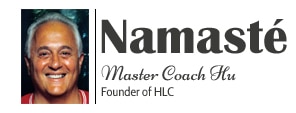It is important for your spiritual counseling clients to learn how to maturely protect their boundaries because if they don’t, they will need to use their ego defenses in an attempt to feel safe, and these immature defensive mechanisms will challenge even the most committed personal and business relationships. This is part 1 of how to teach your clients about boundaries and boundary protection.
Why a Spiritual Coach Needs to Teach Boundary Protection

A Boundary Is A Limit That Promotes Integrity. Healthy boundaries stem from your conscious awareness of the distinction between you and the people whom you share your life. There are two types of boundaries: Physical Boundaries such as the invisible three-foot comfort zone that surrounds you, and Emotional Boundaries.
Boundaries Protect You And Make You Feel Safe. When you get a scratch, it breaches the barrier of your skin, so you become vulnerable to infection. When your emotional boundaries are breached you also become vulnerable to harm. When someone trespasses your boundaries by thoughtless or intrusive actions these actions are called a… boundary violation.
Two Types Of Boundary Violations
Violations Of Intrusion happen when a person is verbally, sexually, or physically abused. A good example of a verbal violation of intrusion is if a stranger were to ask you, “What’s your favorite sexual position?”
Violations Of Emotional Distance occur when emotional intimacy is less than what is appropriate for the relationship. Emotional distance is harmful especial with children! A child has the right to expect closeness and emotional intimacy from her caretakers and when it is excessively removed or cut off, it hurts, and it becomes emotionally harmful.
For example, when you were a child if your parents only talked to you to give you orders or to reprimand you, this would be a violation of emotional distance. A child needs hugs, affection, and emotional intimacy from her parents in order to feel safe and secure.
FREE COACHING COURSE
If you resonate with this information, HLC created a FREE Transformational audio course titled, 6 Lessons EVERY Coach Must Know. In it, you will experience some of HLC's clinically proven psycho-spiritual Coaching exercises that have helped clients achieve permanent, lasting change since 1993 in our Spiritual Coach Certification Course.
The Objective To Teaching Coaching Clients Boundaries
As a Spiritual Coach, I teach all my Spiritual Life Coaching and Transformational Coaching clients that the objective of corrective boundary exercises is to teach you the life skills that you never learned from your parents. If you didn’t have “perfect parents” to model (copy), you’ll need to learn Corrective Behaviors so that you can live an emotionally mature, self-empowered life.
To successfully learn corrective boundary exercises, you’ll need to embrace discipline. Most people think that discipline means to “Force myself to do something I don’t want to do.” But actually, the word discipline comes from the Latin word “disciplana” which means… to learn or teach. Discipline is the power you’ll need to draw from to re-educate yourself on how to protect your boundaries.
Intellectual knowledge (enlightenment) is easier to acquire than emotional knowledge (self-empowerment) because conceptual thought does not require that you change your behavior. When you learn new ways to protect your boundaries the imprint will be permanent. Meaning, that you’ll protect your boundaries without having to think about it.
Emotionalizing your new boundary exercises is the key to permanent behavioral change. As a Spiritual Coach, I tell my spiritual life coaching clients that “lip service” without behavior has no value. It is easy to read and talk about why protecting your boundaries is important, but to do it, live it, and feel it, requires study, practice, and emotionalizing.
Many decades of field experience as a Spiritual Coach who specialized in psycho-spiritual life coaching have taught me that you will feel emotionally safe & secure in the world when you believe that you are capable of protecting your boundaries as a mature adult.
Boundary Mastery Truisms
- The development of your spiritual self and the development of healthy emotional boundaries go hand in hand.
- Weak boundaries… equal a weak self-image.
- Healthy boundaries… supports the development of a healthy self-image.
- A person who doesn’t know how to maturely protect her boundaries will resort to using ego defenses such as withdrawal, enmeshment or verbal abusive in an attempt to defend herself.
- Boundaries can be tricky because we wear so many different identities (roles) with people that we are close with (counselor, friend, teacher, boss, employer, spouse, child, sibling etc.).
- Often, it’s hard to judge what’s appropriate boundary behavior because boundaries need to be flexible, yet firm.
Anne Katherine, the author of The Boundaries Book, uses a visual metaphor to help us better determine what are appropriate relationship boundaries. She tells her readers, “To determine appropriate relationship boundaries ask yourself- Am I looking up, down or across at the person in question?”
As a Spiritual Coach, I explain this to my clients this way. If you’re looking up (parent, boss, teacher, counselor) you’re not required to counsel or take care of them, but they have more boundary leeway to counsel and take care of you. If you’re looking down (child, client, student, or any subordinate) she’s not your peer and therefore your relationship is not equal. She should not be counseling you and you should not be giving her personal information. If you’re looking across to a person she’s your peer (friend, spouse, co-worker, sibling) giving and taking works both ways; no ones in charge and both of you must be willing to counsel and be counseled.
If you are a Spiritual Coach I strongly recommend that you add Boundary Mastery drills to you Spiritual Life Coaching exercises that you do with your Transformational Life Coaching clients.
If you are a Spiritual Coach I strongly recommend that you add Boundary Mastery drills to you Spiritual Life Coaching exercises that you do with your Transformational Life Coaching clients.
In part two of this lesson l will teach you how to constructively use your yang energy of anger to protect your boundaries, and I will elaborate more about why your Spiritual Coaching Clients find it difficult to validate their Violations of Emotional Distance.
FREE COACHING COURSE
If you resonate with this information, HLC created a FREE Transformational audio course titled, 6 Lessons EVERY Coach Must Know. In it, you will experience some of HLC's clinically proven psycho-spiritual Coaching exercises that have helped clients achieve permanent, lasting change since 1993 in our Spiritual Coach Certification Course.

